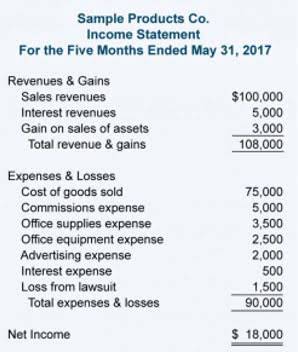
Understanding this distinction is key to assessing your firm’s financial health. It’s easy to record all deposits to bank accounts as income, but deposits made to IOLTA accounts aren’t income for your law firm—they belong to your client. In cash basis accounting, you record income and expenses when money changes hands. In accrual accounting, you record revenue when earned and expenses when incurred, regardless of when cash changes hands. While there are a lot of factors to balance, here are the essentials for law firm accounting and bookkeeping success that you should get a handle on ASAP. It involves a ton of inefficient, manual work—involving a lot of spreadsheets, paper invoices, inputting data entry, and struggles with collections.
- A solid bookkeeping for attorneys system keeps your financial house in order and gives you the data you need to make smart business decisions.
- Automatically maintaining IOLTA-account compliance with LawPay and centralizing case and financial data in MyCase helps save your firm from the time and labor needed to manually track transactions.
- When it comes to key accounting concepts, it’s really about organization.
- Law firm trust accounts, including IOLTA, operate under strict regulations designed to safeguard client funds.
- In larger firms, there are clear paths for advancement into senior accounting roles or management positions.
Financial Transactions and Reporting
- Law firms must regularly review these financial reports to ensure they stay compliant with regulations, meet their obligations to clients, and make informed decisions for their firm’s growth.
- Detailed information is crucial to reaching your law firm’s financial goals and maintaining client transparency.
- RunSensible’s Legal Case Management software exemplifies the transformative impact of technology on legal accounting.
- By using sound bookkeeping practices to keep accurate records and consistently review the firm’s financial statements on a monthly or weekly basis, you’ll see your firm’s true financial picture.
- Understanding the distinction between the two is crucial for effective financial management in a law firm setting.
- We’ll go over the cash and accrual accounting along with the pros and cons of both below.
- Nobody likes nasty surprises, and nobody appreciates an unexpected invoice packed with undecipherable services and additional charges.
For instance, if your projections show a dip in revenue next quarter, you can get ahead of the problem by focusing on bringing in more clients, adjusting spending, or setting aside extra cash now. Conducting regular financial audits is good practice in any industry, and particularly important in law firm bookkeeping, where you might well be required to submit a mandatory auditory report as part of a case. Analyze your practice’s financial records on a regular basis to check for accuracy and safeguard against malpractice or mismanagement. You’ll be able to identify and tackle any discrepancies as they arise and identify any areas needing improvement.
Next Day Payments

However, additional payment methods and legal payment processors lead to more compliance requirements. Consider trusted solutions like LawPay’s payment processing software, which includes built-in compliance. The main law firm bookkeeping accounting methods are cash accounting, accrual accounting, and a hybrid of both methods.
Enterprise & big teams

Cash basis accounting records financial transactions when cash is received or paid, while accrual basis accounting records transactions when they are earned or incurred, regardless of cash flow. In the context of a law firm, cash basis accounting may be simpler and easier to manage, as it requires tracking only actual cash transactions. However, accrual basis accounting provides a more accurate representation of a firm’s financial health, as it accounts for unpaid receivables and liabilities.

Better client relationship management

It’s to consult with a legal accountant or bookkeeper so they can help you select the right approach to keep your firm financially sound and compliant. As a law practice, you have a fiduciary duty to your clients, as well as an ethical responsibility to properly handle the financial resources clients entrust to you. Estateably is a cutting-edge software platform designed specifically for trust and estates professionals. This ensures that financial transactions are properly documented and tracked, minimizing the risk of errors or discrepancies in legal accounting. Moreover, Clio allows users to ensure compliance with different state rules and regulations when using Interest on Lawyers’ Trust Accounts (IOLTA), thereby simplifying complex legal accounting processes. To identify growth opportunities, law firms can utilize financial reports and statements.
- They should also have a proven track record of accurate recordkeeping, trust account management, and generating comprehensive legal industry financial reports.
- Accrual accounting records revenues and expenses when they are earned and incurred, regardless of when the money is actually received or paid.
- The right software can save you time, reduce human error, and help you stay compliant, without making you hate your life.
- This approach helps in detecting errors and ensuring the balance sheet remains balanced.
- We integrate with top time and billing, expense, and case management solutions to ensure your firm captures every billable hour and optimizes revenue.
- Both general accounting and trust accounting are necessary for your firm’s success—and integrations seamlessly tie the two areas together.
Ensure Compliance with Trust Accounting Rules
Trust accounting is integral to maintaining client trust and upholding the Accounts Payable Management law firm’s reputation. Law firms must regularly review these financial reports to ensure they stay compliant with regulations, meet their obligations to clients, and make informed decisions for their firm’s growth. Implementing best practices and maintaining accurate, up-to-date records are crucial in achieving successful law firm accounting.
Law Firm Accounting: Streamlining Finances for Legal Success

Even though interest rates on business accounts are traditionally low, having a cash surplus in a business savings account can improve your likelihood of being approved for a loan. It’s also a good place to store money you’re setting income statement aside for taxes and emergencies. Maintaining accurate ledgers and routinely reconciling accounts can also take up a lot of time. For example, you must maintain an accurate ledger for each client in case they ask for their account’s status. Lawyers must keep track of a surplus of information across multiple sources. Accrual accounting records revenues and expenses when earned and incurred, regardless of when the money is received or paid.



